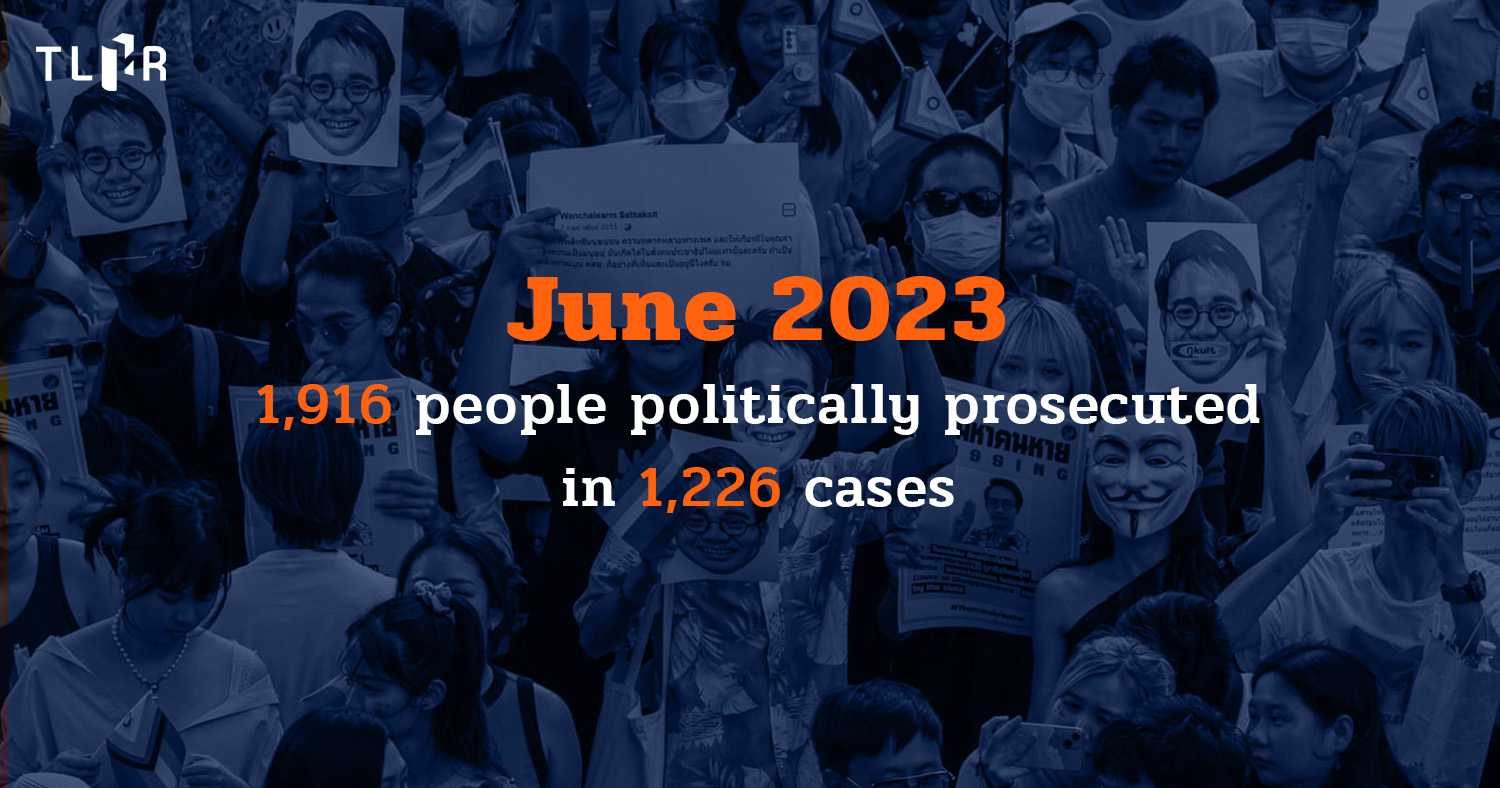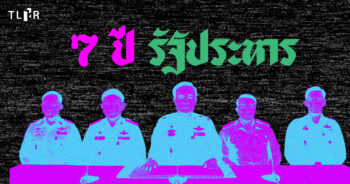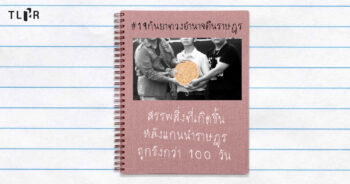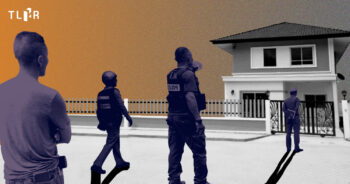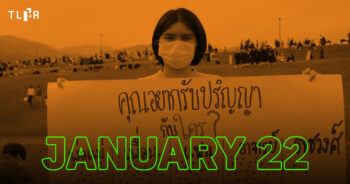In June, while only few new politically-motivated lawsuits emerged, the trials of many existing ones proceeded in full swing. The courts have issued verdicts for at least 12 lese-majeste cases within a course of merely one month acquitting, convicting (imprisonment), or suspending the punishment of the defendants. As a result, two more people in these cases have ended up behind bars. The courts have also passed verdicts for eight other cases both ruling defendants guilty and innocent.
According to the TLHR statistics, at least 1,916 people have been prosecuted in 1,226 cases due to political participation and expression since the beginning of the “Free Youth” protest on 18 July 2020 until 30 June 2023.
Among this number are 215 cases involving 286 children and youths under 18 years old.
Compared to May 2023, this month’s statistics saw an increase of 2 people and 8 cases (only counting those never been charged before).
If we also count and include those who are charged redundantly in multiple cases, we have found that there would be at least 3,860 instances of prosecution in total.
The prosecution can be grouped according to key charges used, as follows:
1. The royal defamation or “lèse-majesté” charge under Section 112 of the Penal Code: at least 252 individuals in 271 cases.
2. The “sedition” charge under Section 116 of the Penal Code: at least 130 individuals in 41 cases.
3. Charges of violation of the Emergency Decree: at least 1,469 people in 663 cases (since May 2020 when the first lawsuit against protesters and political activists was filed)
4. Charges under the Public Assembly Act: at least 148 people in 80 cases.
5. Charges under the Computer Crime Act: at least 178 people in 196 cases.
6. Contempt of court charge: at least 36 people in 20 cases and insult to the court charge involving at least 34 people in 10 cases.
Out of the mentioned 1,226 cases, 371 have been concluded, meaning over 855 cases are still ongoing at various stages.
.
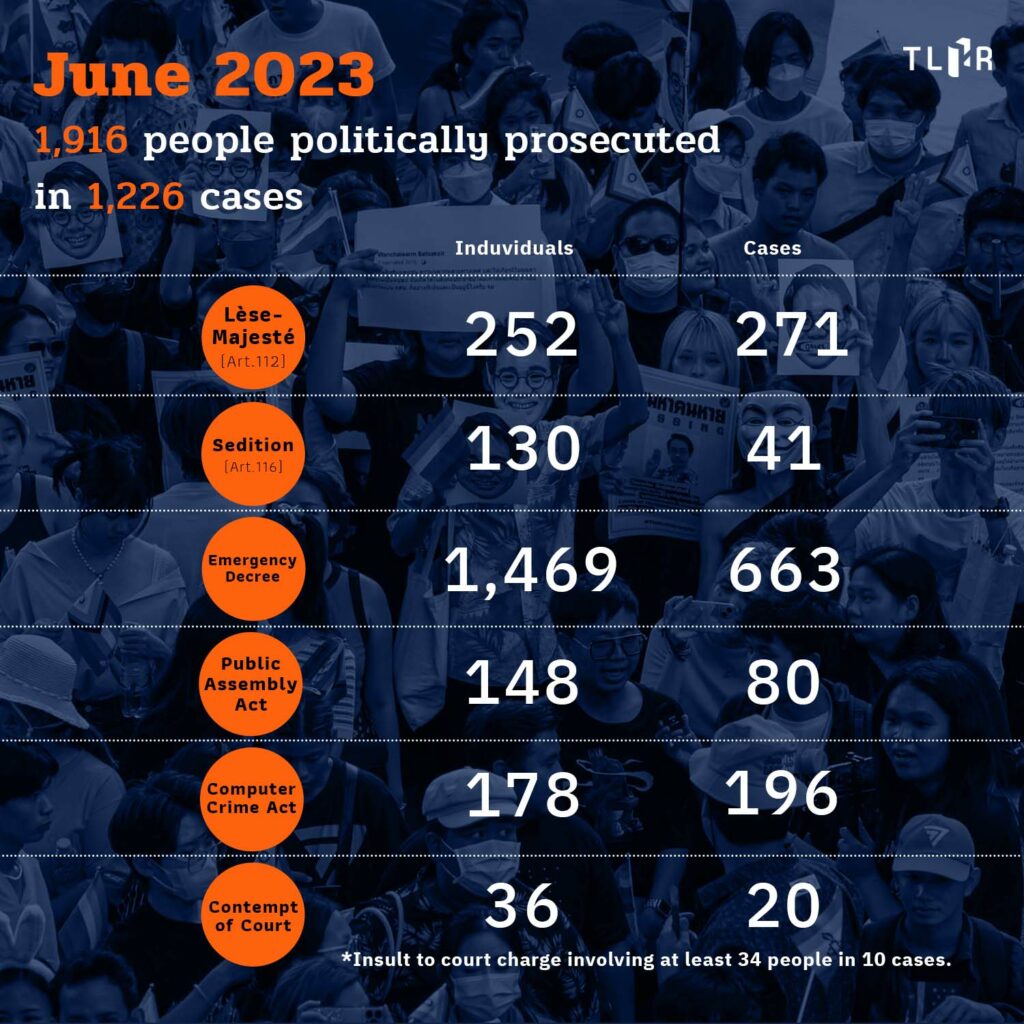
.
The prosecution trends in June 2023 show the following key developments:
.
Two more people have been charged with lese majeste, while four are behind bars during trials. The courts passed verdicts for a total of 12 cases in a month.
As far as the statistics of the lese-majeste lawsuits are concerned, we are aware of at least two new lawsuits being filed against two people. ‘Wave’, a 30-year-old citizen from Nontaburi, was accused by Noppadon Phrompasit, the secretary of Thailand Help Center for Cyberbullying Victims (CVC), of sharing and posting information on Facebook about the use of taxpayers’ money to produce vaccines in May 2021. This case has only come to TLHR’s attention shortly before the public prosecutor forwarded it to the Criminal Court. Another case concerns a citizen who has not heard the charges yet.
As for the existing lese-majeste trials, in the past month, the Court of First Instance has passed verdicts to a considerable number of cases, namely 12. Among them, four cases were where the defendants decided to defend themselves in trials and eight were where they confessed.
Where the defenses took place, it was found that the courts have dismissed the charge of lese majeste in two cases, including that of Sirapat, who removed the framed royal portrait from the guardhouse and threw it into a canal. The Nontaburi Provincial Court saw that the defendant’s act was intended to steal an object at night only, and it could not be heard that the defendant had a special intention to insult the King.
Another case where the court dismissed the lese-majeste charge is that of Chookiat Saengwong, who was accused of fixing paper sheets with the text “A Place for Garbage!” on the royal portrait of King Rama X. The court reasoned that there remained reasonable doubts in the plaintiff’s evidence, which consisted of only one eye witness who saw the incident from afar, around 10 meters away from the place of incident, and a CCTV footage which was also from a distant angle.
.

.
Meanwhile, two cases found guilty by the court include that of Teepakorn, who had published a Facebook post raising questions about the value of the monarchy and was sentenced to three years in jail by the Criminal Court. The other case is that of Chookiat and Wanwalee revolving around the speeches at the 6 December 2020 protest. The duo were sentenced to imprisonment of two years and eight months each. The Appeal Court did not allow bail during appeal for the defendants in the former case, but did allow it in the latter.
In the six cases where the defendants confessed, the courts have given them all suspended imprisonment sentences. This also included the case of ‘Pong’ who had been accused of publishing six Facebook posts and had his sentence of a 18-year jail term commuted to six years and 36 months and suspended following a confession.
Meanwhile, the courts decided not to suspend the sentences in two cases: that of Prasong, who published two statements and was sentenced to a three-year jail term, and that of Warunee, who published a post about the Emerald Buddha and was sentenced to a jail term of one year and six months. In the latter, the court also did not allow her bail.
Moreover, the court has dismissed all charges in the case against five citizens accused of “obstructing a royal motorcade” under Section 110, which contains harsher penalties than Section 112 (lese majeste). The court saw that based on all witnesses and evidence the defendants had no intention to obstruct the royal motorcade but acted based on an understanding that the riot control police would disperse the assembly. At the same time, it was apparent that the police’s motorcade route management went smoothly.
.

.
Given the situation above, there are currently four people associated with lese-majeste cases who are being detained during trials: Weha (detained during appeal), Wut (detained during a trial by the Court of First Instance), Teepakorn (detained during appeal), and Warunee (detained during appeal).
It should also be mentioned that in the past month, the witness examination of the trial of Chonthicha “Lookkate” Jangrew took place without the presence of the lawyer. The appointment had been moved to an earlier date (the court did not allow a postponement), even though the lawyer insisted that he had already been engaged in another case on that day. As a result, Lookkate rejected the procedure. Later, the court decided to postpone the appointment before the examination of the defendant’s witnesses and summon the plaintiff’s witnesses for a cross-examination.

.
The courts passed mixed verdicts acquitting and convicting the defendants of the Emergency Decree cases.
Last month, there was no report of new cases involving the violation of the Emergency Decree, although new people have been additionally accused in one existing case. That is, in the case arising from the International Workers’ Day March on 1 May 2023, the police from Pathum Wan Police Station has charged two more activists, namely Somyot Prueksakasemsuk and Thanaporn Wijan, with offences under the Public Assembly Act and Amplifier Act.
The courts have further acquitted the defendants in three cases related to the violation of the Emergency Decree during the protests in 2020 – 2023, including the case against 21 activists protesting in front of the Phu Kieo Police Station calling on the police to apologize for harassing students, the case against 18 activists and citizens who have splashed paints in front of the Thung Song Hong Police Station (only two activists charged with causing damages to the properties have received a suspended sentence.
Another case is that against twelve people participating in the Free Youth Rally on 18 July 2020. The Criminal Court dismissed the charge of violating the Emergency Decree, but convicted them of Section 116, Section 215, the Cleanliness Act, and the Traffic Act, and sentencing them to two months in prison, though with suspension.
Meanwhile, four Emergency Decree cases were found guilty: two received a sentence of fine and the other two received a suspended imprisonment sentence. In the case of Korat Car Mob on 15 August 2021, the Appeal Court has overturned the decision by the first court, who had issued an order of acquittal, to a sentence of fine.
Hence, the trends of the court decisions in the politically-motivated Emergency Decree cases are clearly split into two: either the courts focusing on the total ban of assemblies during the pandemic or seeking a balance between the exercise of the freedom of assembly and the Covid-19 measures. That said, we still see more instances of acquittal than conviction.
